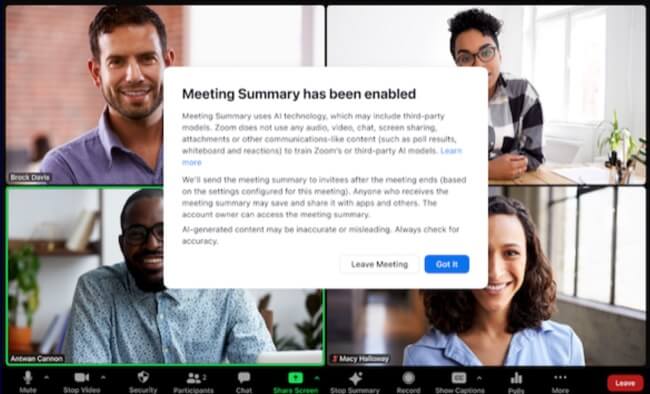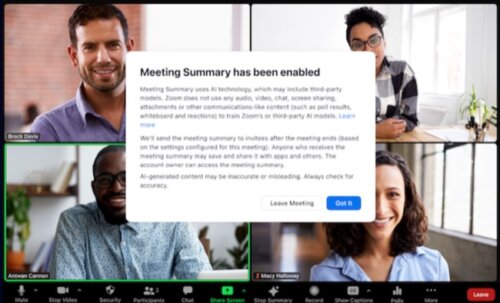
In an alarming move, video conferencing giant Zoom recently updated its Terms of Service (ToS), raising serious concerns about user privacy and data exploitation. The new ToS allows Zoom to collect and use your Zoom audio, video, and chat data to train its artificial intelligence (AI) algorithms. This update has raised eyebrows and sparked a debate regarding the true intentions of the company and the extent to which user privacy is being compromised and user data is being exploited.
Zoom’s Plan to Exploit User Data
Zoom’s latest ToS update has brought to light the company’s questionable intentions and its seemingly sinister plan to exploit the data of its users. By allowing the collection and use of audio, video, and chat data for AI training, Zoom is essentially turning its users into unwitting subjects for its algorithms, without providing them with a clear understanding of how their data will be used or the extent of their privacy being invaded. (Seems like a move straight out of Facebook’s playbook.)
While the company claims that the data will be anonymized and stripped of any personal identifying information, the lack of transparency raises concerns about the true nature of this data collection. Zoom has faced criticism in the past for its mishandling of user data, including the infamous "Zoombombing" incidents where uninvited guests suddenly appeared in Zoom meetings. Such instances only serve to undermine the trust users can place in the company’s assurance of keeping their data secure and private.
The implications of this dubious update go beyond mere data collection. Zoom’s AI algorithms can potentially learn and analyze users’ behaviors, conversations, and even emotions, extracting valuable insights for the company’s use. This raises questions about the extent to which Zoom is prioritizing user privacy and whether it is using its vast user base as a training ground for AI advancements without sufficient consent or consideration for its users.
To be clear, when the furore rose to a certain level, Zoom’s Product Chief Smita Hashim is said to have put out a statement saying that “for AI, we do not use audio, video, or chat content for training our models without customer consent,” adding that “Our intention was to make clear that customers create and own their own video, audio, and chat content. We have permission to use this customer content to provide value-added services based on this content, but our customers continue to own and control their content.” However, that information came from this post on Axios, and their link to the supposed statement (a blog post on Zoom here) doesn’t say that at all.
The Internet Patrol is completely free, and reader-supported. Your tips via CashApp, Venmo, or Paypal are appreciated! Receipts will come from ISIPP.
In fact, what it says is that they have “updated our terms of service (in section 10) to further confirm that Zoom does not use any of your audio, video, chat, screen-sharing, attachments, or other communications like customer content (such as poll results, whiteboard, and reactions) to train Zoom’s or third-party artificial intelligence models.”
BUT
On the very same page they go on to explain that they use AI to provide a new feature: a Zoom meeting summary. Which is created by, you guessed it, AI. So clearly their AI engine is taking note of the contents of your meeting. Which leads us to think that Zoom is employing a tactic as old as, well, words: weasel words.
In other words, they can truthfully say that they aren’t using your content to “train” their AI, but they sure can’t say that the AI isn’t scraping your content.
Zoom’s updated ToS, allowing the collection and exploitation of audio, video, and chat data for AI to generate a meeting summary has rightfully raised concerns about user privacy and the company’s intentions. It is essential for users to understand the implications of this update and weigh the benefits of using the platform and some of its services against the potential risks to their privacy.
The Internet Patrol is completely free, and reader-supported. Your tips via CashApp, Venmo, or Paypal are appreciated! Receipts will come from ISIPP.










